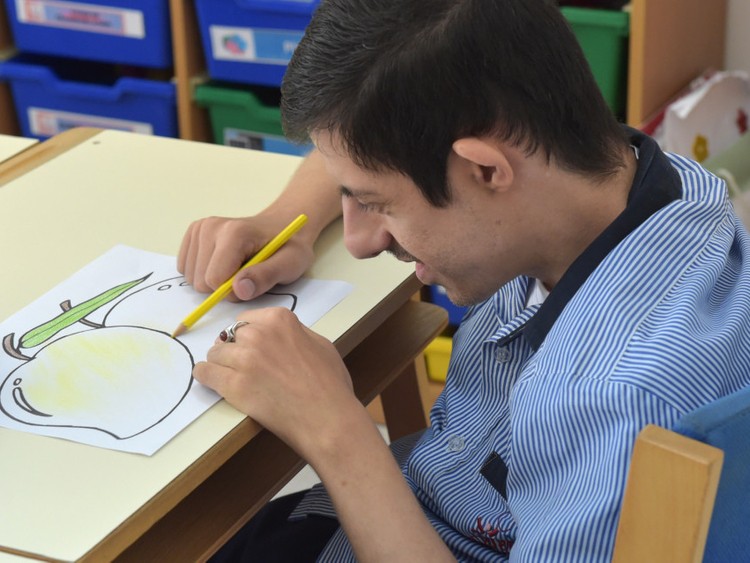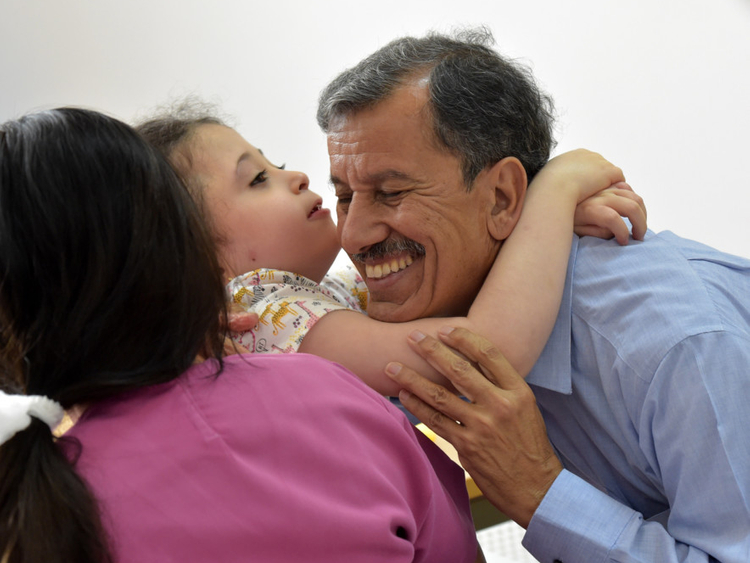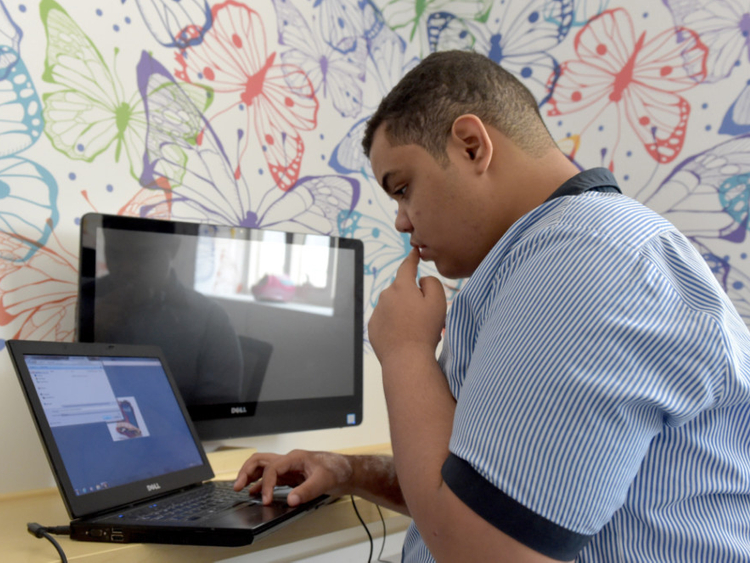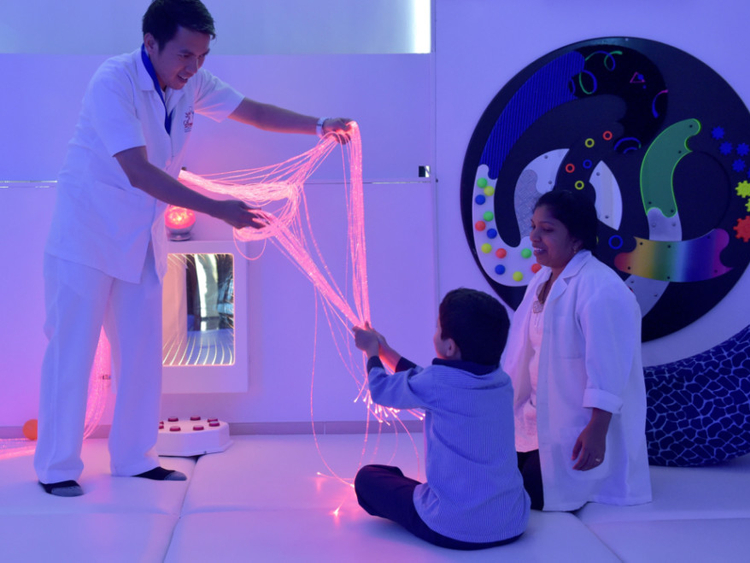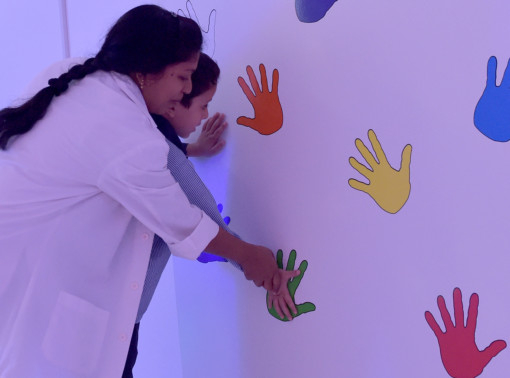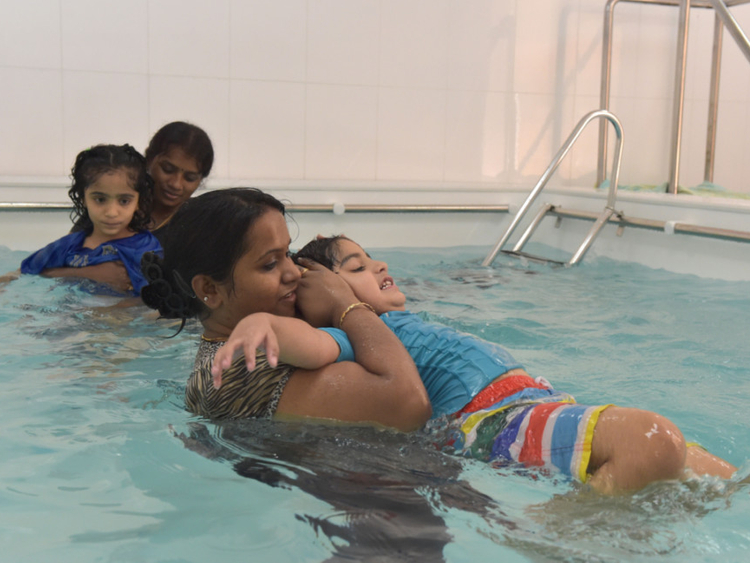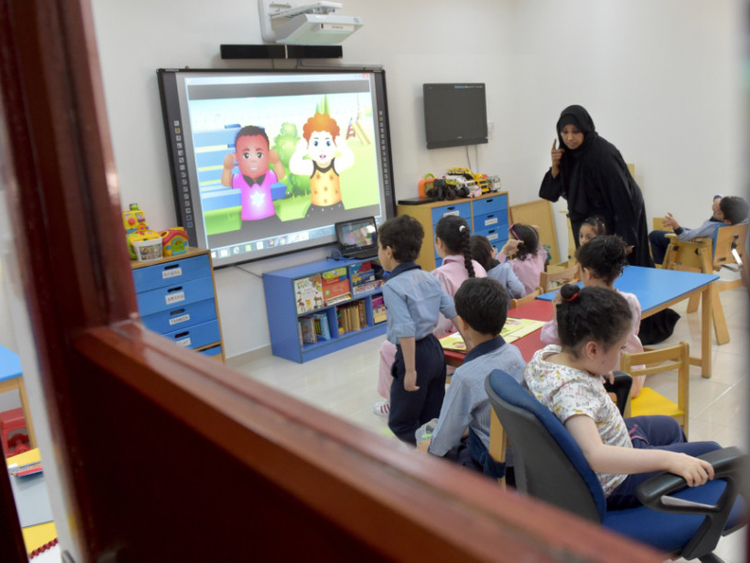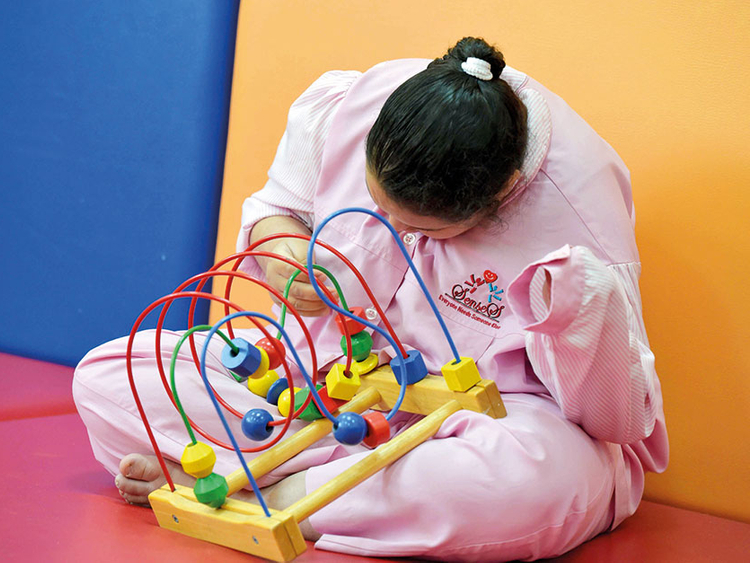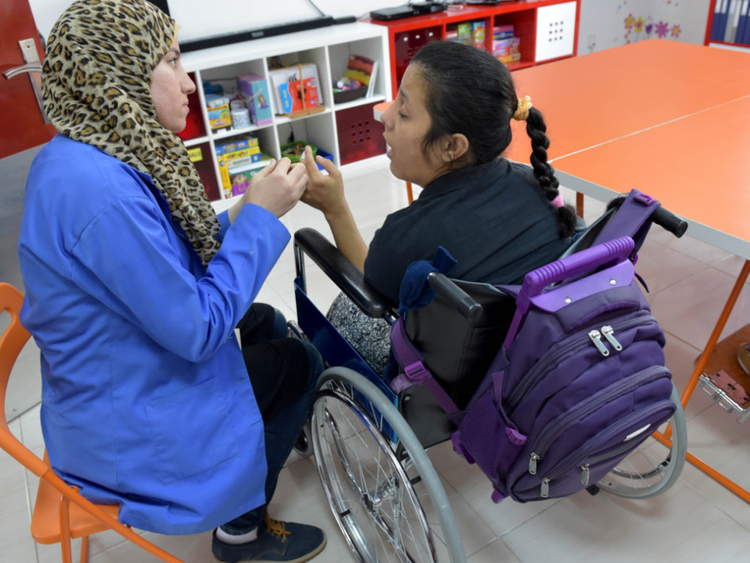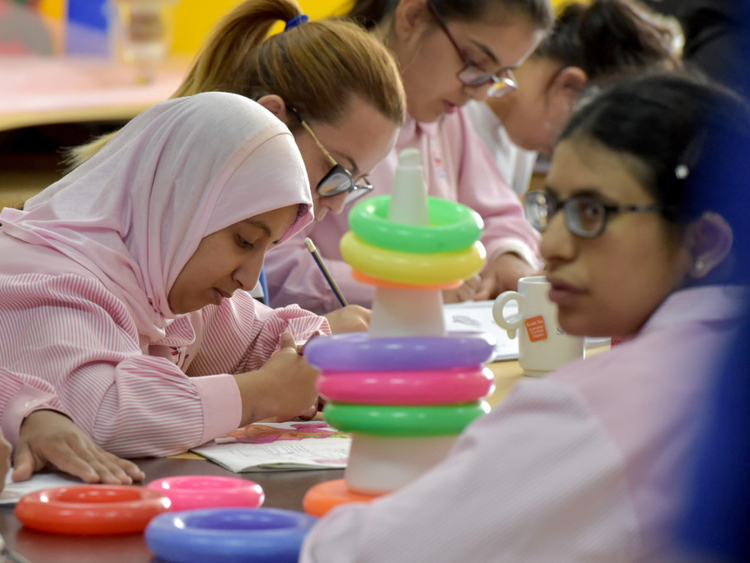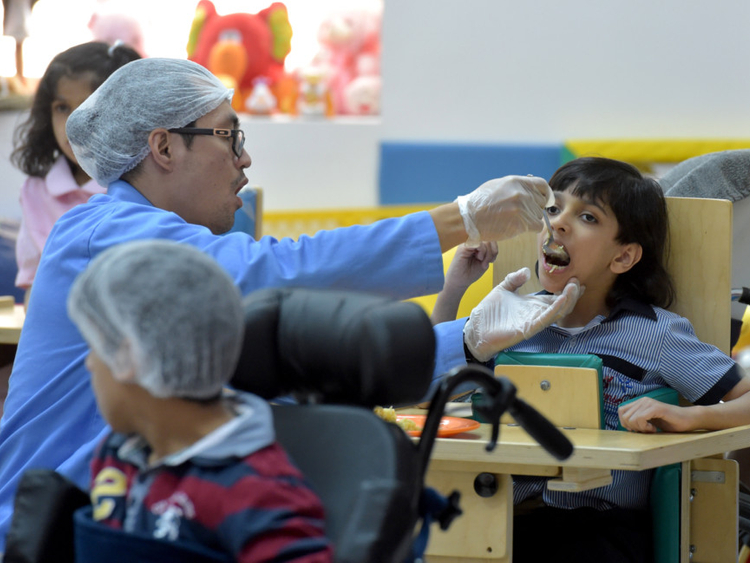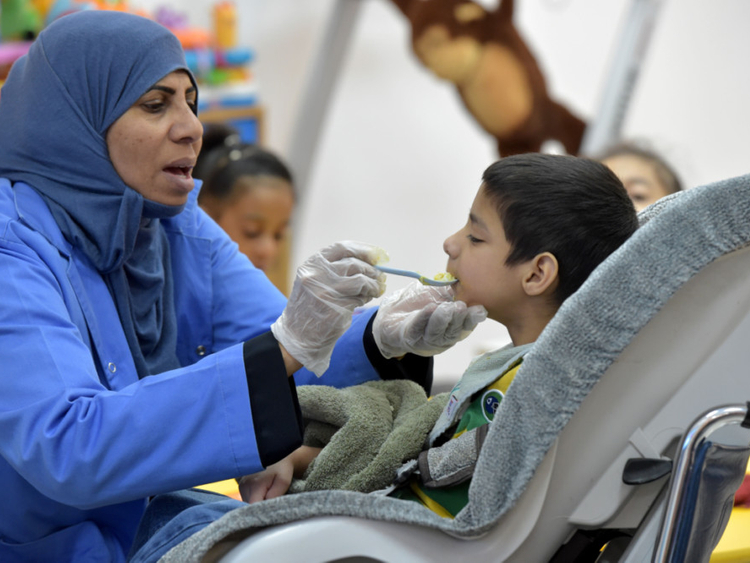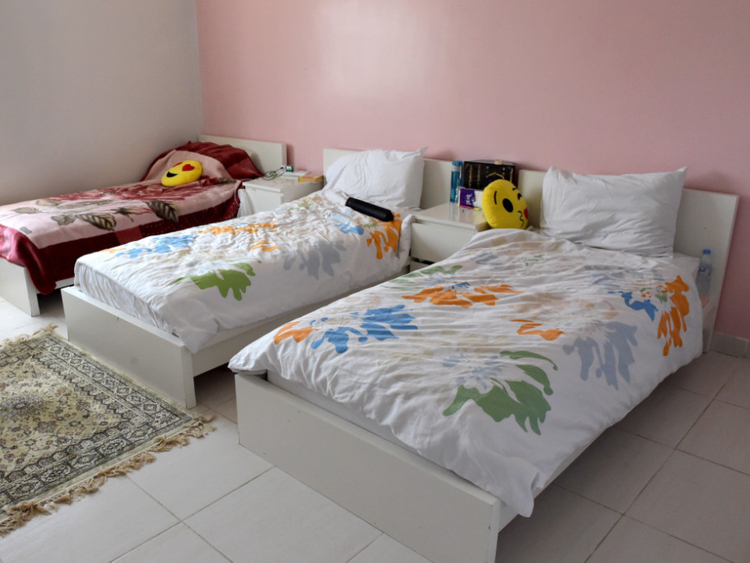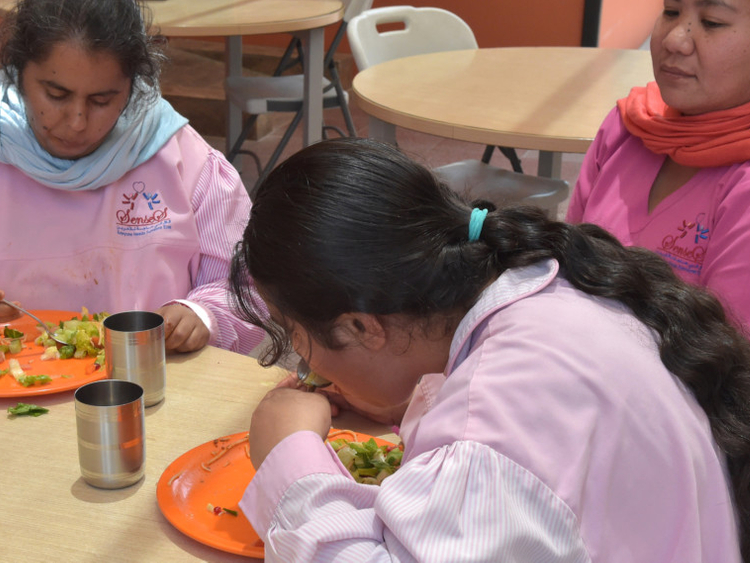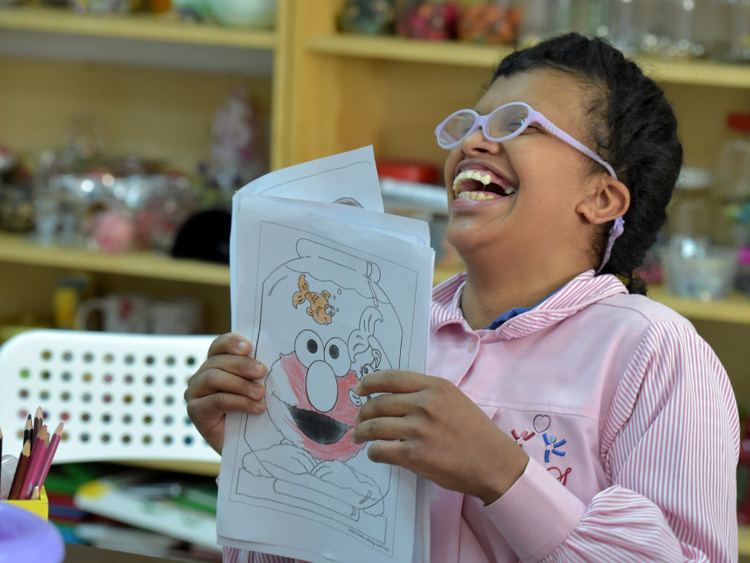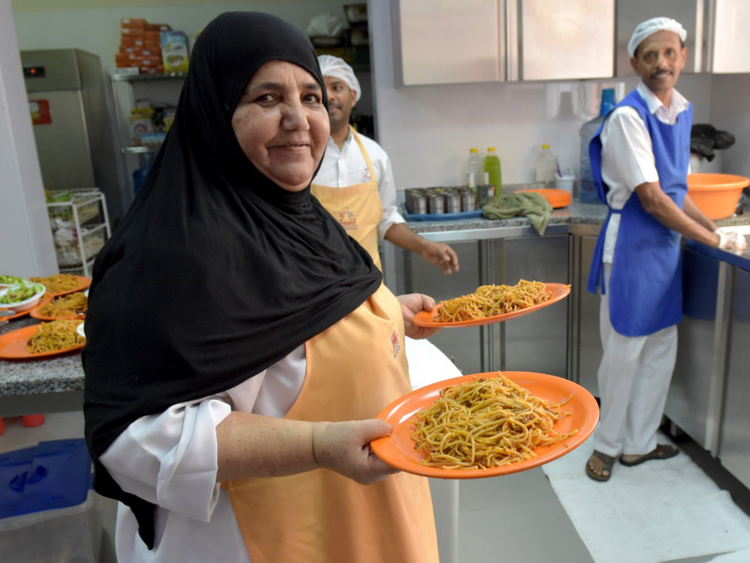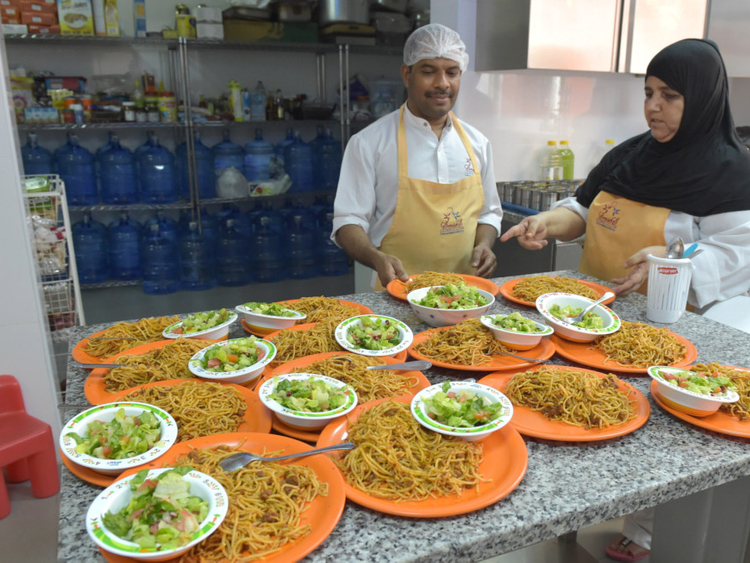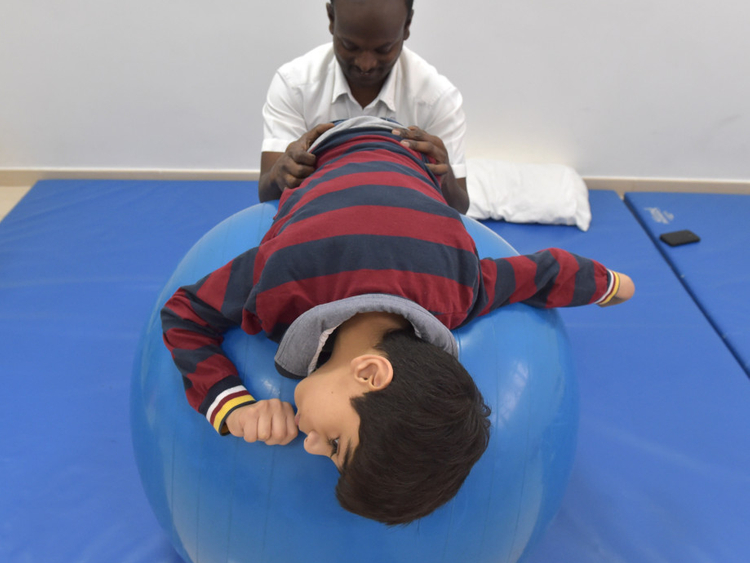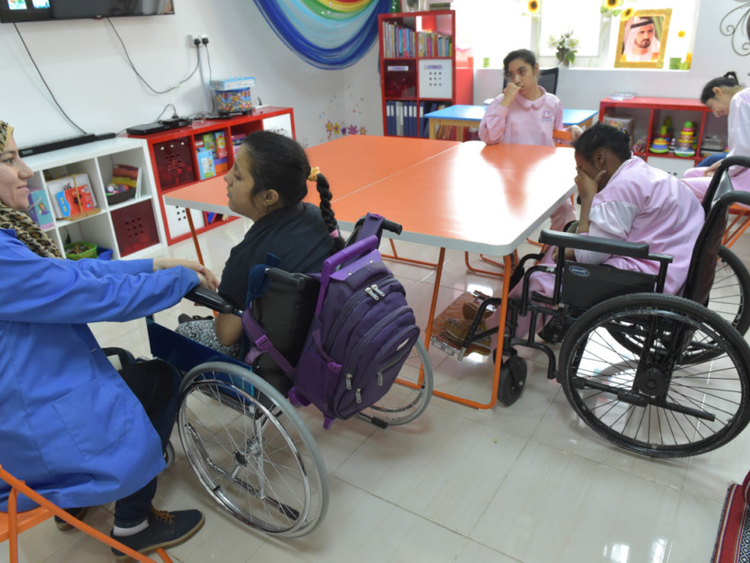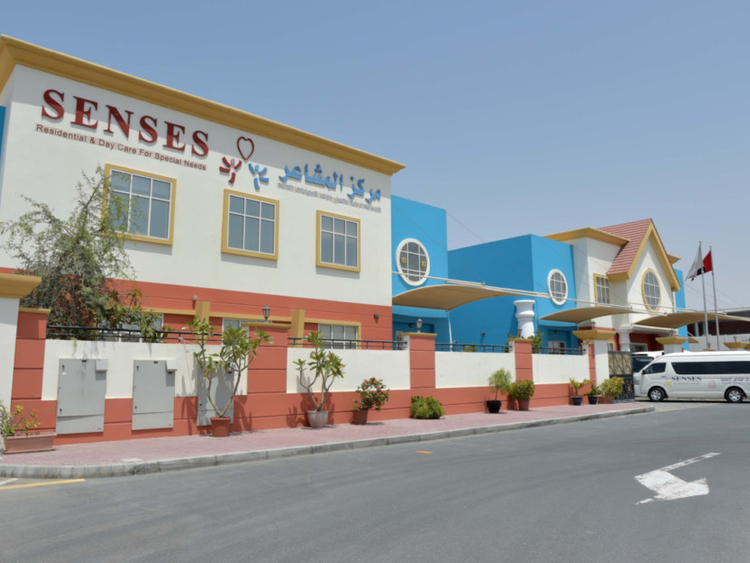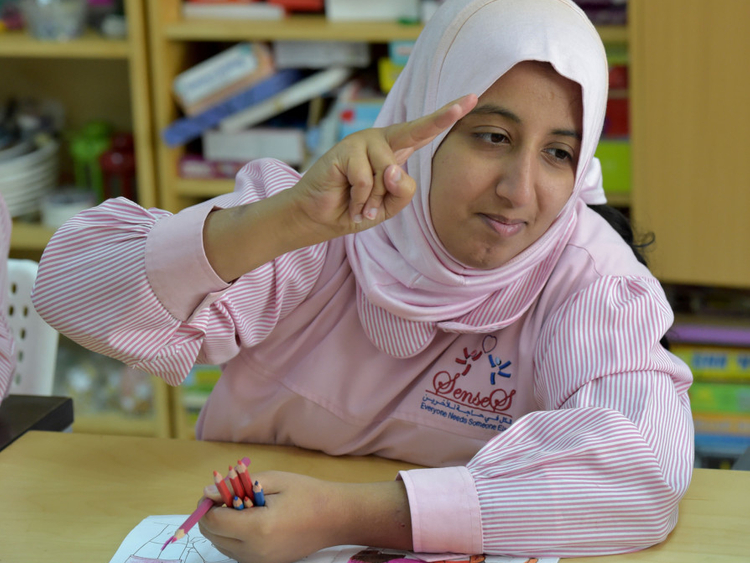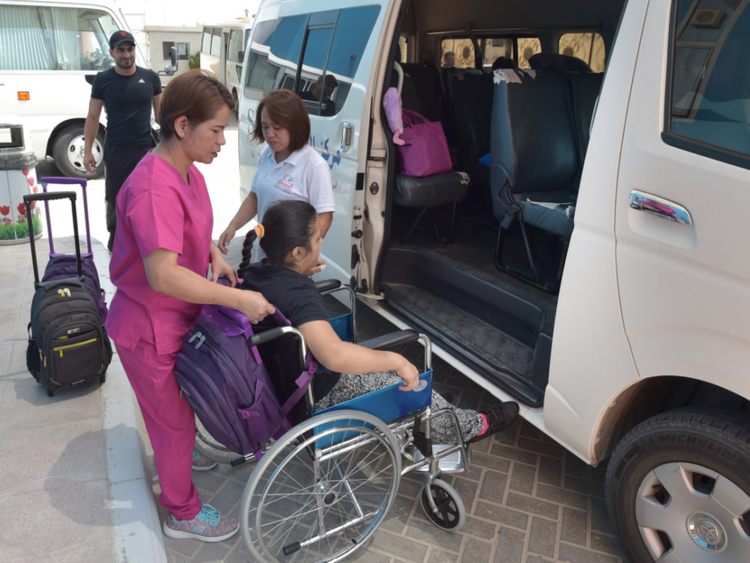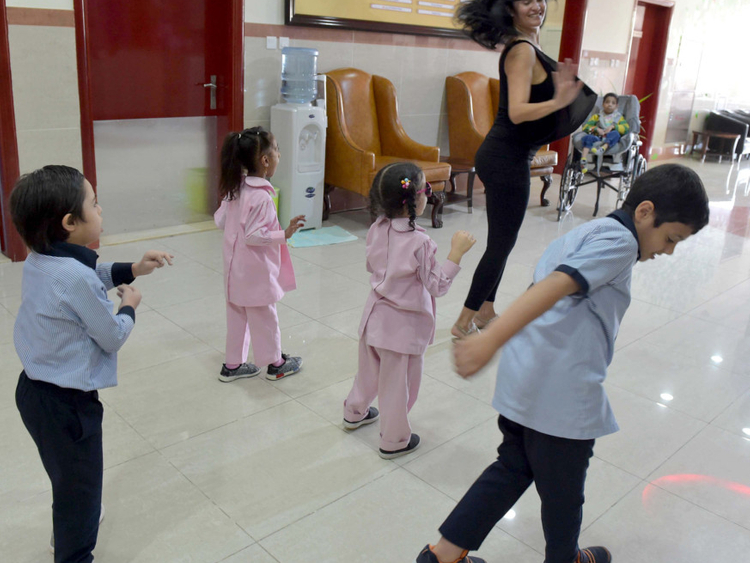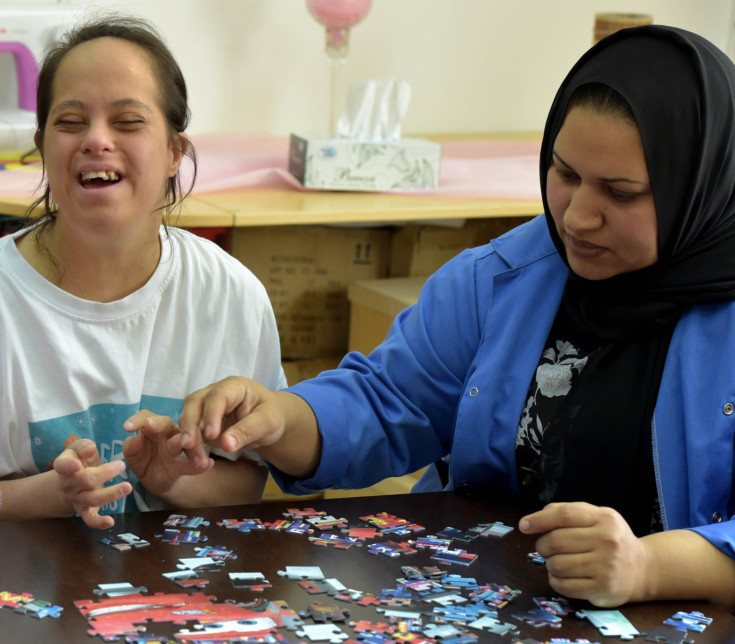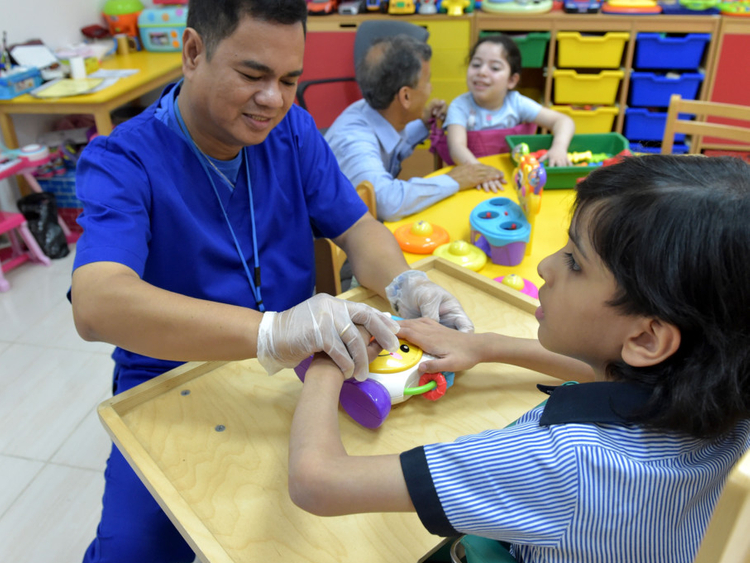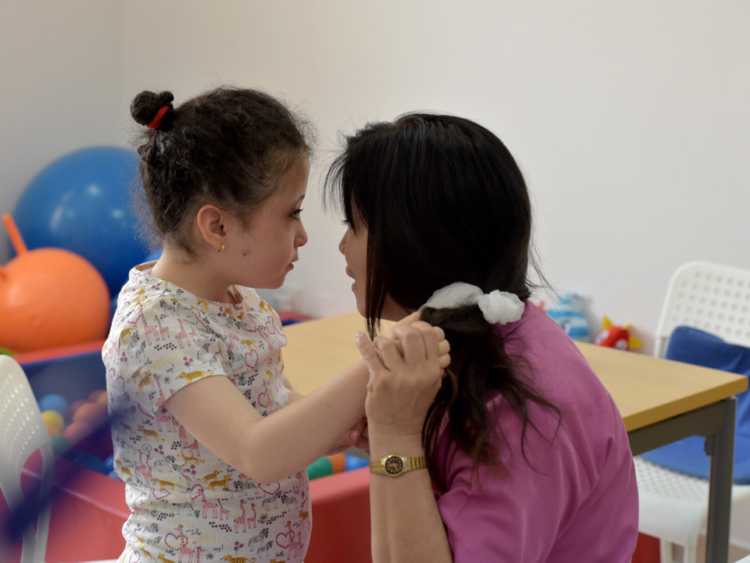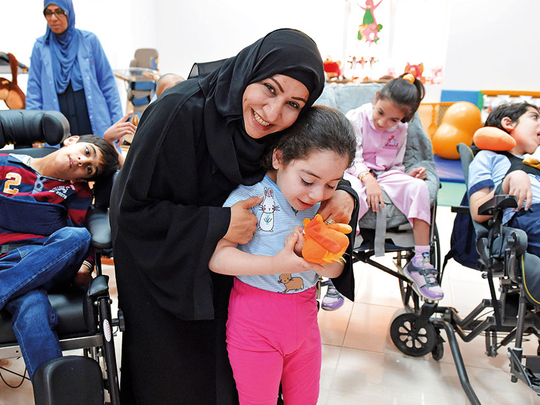
Dubai: The UAE’s only centre that houses orphans and other children with severe special needs is looking for help.
The simple saying, ‘Everyone needs someone else’, is stitched into the uniform of the 110 children at the Senses Centre in Dubai.
And with 127 staff — more than one for each child — it’s a saying that the school takes very literally.
Pankaj Sharma/Gulf News
Treatment being given in the sensory room at the centre.
Dozens of volunteers also help out in the classrooms, and on the once-a-week outings to theme parks and zoos.
Located in the sleepy Umm Suqeim suburb, in the shadow of the ultra-luxury Burj Al Arab hotel, the walled centre looks unassuming from outside.
Spread across two buildings, separated by a shaded playground, laundry and kitchen, 75 pupils aged two to 20 live full-time in the centre’s dormitory. The rest are day pupils.
Pankaj Sharma/Gulf News
An autistic boy and girl in the aquatherapy room.
Most have severe disorders, ranging from cerebral palsy, autism, Down syndrome, and mental retardation.
Nineteen are orphans, abandoned in hospitals by parents unwilling or unable to take care of them.
But right now, the school struggles to take new pupils from a waiting list of 200 children with special needs. There simply isn’t the space — or finances.
The centre does charge fees for those with parents who can afford to pay. Fees range from Dh40,000 per year for day pupils, up to Dh90,000 for a live-in student who requires a dedicated full-time carer.
Pankaj Sharma/Gulf News
A special child in the soft playroom at the Senses Centre.
Special situations
But currently, the vast majority of pupils do not pay a single dirham, according to school staff. This is often due to poor parents, and the 19 abandoned special needs orphans adopted by the centre.
“There are some parents who, I think inside themselves psychologically, reject having a special-needs child,” said Nadia Al Sayegh, the centre’s founder and manager.
“This is the situation of the kids we have. They are special cases. They are not only special needs, they are often special needs with very special situations.”
Senses was started in 2002 by Al Sayegh, an Emirati social worker, in a nearby villa.
From the very beginning, the rent for the villa was paid for by His Highness Shaikh Mohammad Bin Rashid Al Maktoum, Vice-President and Prime Minister of the UAE and Ruler of Dubai, Al Sayegh added
In April 2007, the centre moved into a purpose-built facility, again paid for by Shaikh Mohammad.
And while the accommodation is all paid for, there are still enormous un-met needs. Al Sayegh and her staff hope that while the UAE’s national Year of Giving is in full swing, firms and individuals, who can, donate either time, items or cash.
One need is for people or firms to help upgrade the centre’s in-house launderette — mountains of bedding, towels and uniforms need to be washed, ironed and folded each day.
Then there’s cash needed for the food cooked by four chefs and two helpers in the kitchen, and the crates of diapers the centre goes through on a daily basis.
Funding is also needed to pay staff salaries — many of them highly qualified to work with special needs children.
Due to limited awareness of the centre, staff have to work hard to plug the gaps in funding. And not all of the assistance received has been useful, according to Al Sayegh.
“Some companies come with chocolates. They come and they give the things that are out of stock. In two or three days, it will be expired,” she recalled.
“I can’t sell these things and get at least money or give them to the staff or kids.”
She called on would-be donors to be “honest with giving”.
“People who come here, they have to think that these are their kids.”
Although invaluable help is often at hand.
The local branch of a US tech firm donated several computers for the computer lab. An Emirati businessman sometimes steps in to pay the monthly salary of every single staff member.
Some have volunteered at the centre for years — and say it’s changed their perspective.
“I believe that many people live in a cocoon, especially in Dubai, and they don’t see beyond their family and friends,” said Mousa Sadhoon, a Saudi management consultant who lives in Dubai.
“But if they came across situations like this, they wouldn’t hesitate to [provide] support.”
Being surrounded by smiling, happy faces has its own rewards, Sadhoon has found.
“I get motivated every time I come here,” he added.
“Every time I talk to the kids, hug them, they get a smile on their face, I get a smile on my face.”
Endless patience
True to his word, visitors to the centre can expect to be greeted with warm smiles — as well as a strong smell of disinfectant.
Close to the reception area, children with cerebral palsy — an often severe condition where damage to the brain leads to impaired muscle coordination — sit on wheelchairs in a classroom, monitored by carers.
Nearby, in an Aquatherapy room, two staff members hold on to an autistic boy and girl who splash about in warm, chest-high water.
Next door, in a padded playroom, four children play and roll about on pink cushions lining the floor and walls.
One uses the opportunity to catch a nap. The room sees the most amount of usage from pupils whose disabilities would otherwise see them confined to wheelchairs every hour of the day.
In a physiotherapy room, a small boy with cerebral palsy is guided through an exercise routine by an Indian instructor.
Dance therapy
Meanwhile, outside the hall, a volunteer plugs in a laptop to speakers and organises a dance routine for two boys and two girls. Three are autistic, while one girl has Down’s syndrome.
The children form a line as they dance along, and wave and laugh to the music. Upstairs, older children sit in classrooms decked out with television sets and posters. As every pupil learns at a vastly different level and pace, teachers often have to tailor exercises for each child.
Subjects for the older pupils include Arabic and Islamic studies, science, maths and personal care — which includes daily tasks such as hair brushing.
In the occupational therapy room, Ebrahim, a seven-year-old boy from Saudi Arabia who has autism attempts to put on his blue-striped shirt — part of the school’s uniform — with the help of an endlessly patient carer.
Next to him, Tamara, a Lebanese girl of the same age, learns social skills. So far, she’s getting along well — but still struggles to know when to let go from full-hearted hugs with volunteers and carers.
For children with autism, part of their education and learning depends on their understanding of the five senses.
A darkened room, which is padded with white cushions on the floor, is decked out with a disco balls, glowing spaghetti-strands of fibre optic lighting, and speakers playing animal sounds.
Surprise skills
In the computer room, older students learn basic computer skills, such as how to use word processing software or browse the internet.
Every week, teachers lay on a competition to see who has learnt the most.
To the surprise of the staff, some particularly tech-savvy students appeared to have learnt too well.
The extra-curricular activities of Bilal, a burly 16-year-old Emirati with autism, have turned him into almost a legendary figure.
While one his favourite hobbies is to search on the internet for pictures of fast food, staff have found that he’s capable of plenty more.
“One day, I went downstairs, and there was nobody at reception. He was sat on the reception’s computer, and changed the settings,” recalled a Filipino teacher.
“Everybody tried to fix the computer, but nobody could.” So I came up with an idea to give him a chocolate, and I begged him: ‘Bilal, please put the computer back to how it was’. In a second, he fixed it.”
All you need is love
More than anything else, the special needs children at the centre need love, said Al Sayegh.
“We know the secret of this place is love,” she said.
“People who come here, they come with love, they are not just here for a certificate,” she added.
“For people who cannot pay or give, we need them to come with love.”
For some staff at the centre, looking after the children consumes most of their lives — but they don’t mind.
The centre’s chief specialist, Dr Lina Owies, an Arab Canadian expat, often stays overnight, and has endured multiple injuries from the children.
“Sometimes they are playing with you and they don’t know [they’re hurting you],” said Dr Owies. “I’ve had operations on my legs from the severe cases.”
“But believe me, if you give love, they are different,” she added.
“They are more than normal people. If you give love, you’ll see every day, they are smelling your hair, they will hug you, they will kiss you.
“They are angels, really.”


